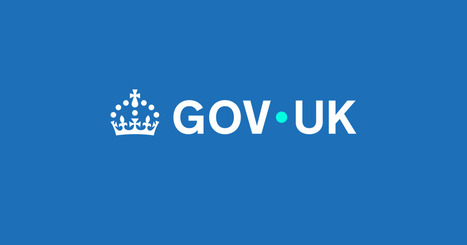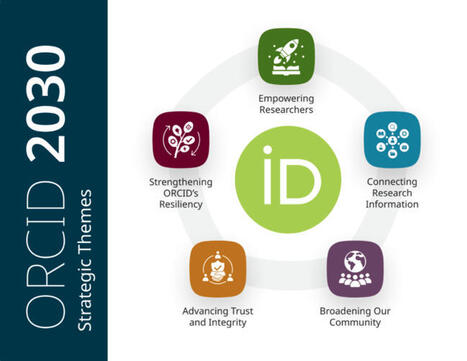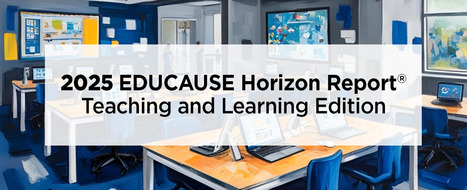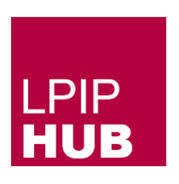 Your new post is loading...
 Your new post is loading...

|
Scooped by
heather dawson
January 31, 7:24 AM
|
National Survey: 95% of College Faculty Fear Student Overreliance on AI and Diminished Critical Thinking Among Learners Who Use Generative AI Tools Full report | Charts | Methodology an

|
Scooped by
heather dawson
January 27, 3:53 AM
|
Miri Firth, co-editor, introduces our 2026 Case Study Compendium, 'Making the 3Es as easy as A, B, C' which "brings together inspiring case studies from universities that are redefining what the 3Es, Employability, Enterprise and Entrepreneurship, mean in practice."

|
Scooped by
heather dawson
January 21, 3:46 AM
|

|
Scooped by
heather dawson
January 20, 3:53 AM
|
Strategy setting out the government’s plans for UK international education and how it will support the sector access global opportunities.

|
Scooped by
heather dawson
January 15, 4:03 AM
|

|
Scooped by
heather dawson
January 12, 6:35 AM
|
ORCID's new strategic plan introduces five Strategic Themes that will guide our work over the next four years.

|
Scooped by
heather dawson
December 23, 2025 8:20 AM
|
A scholar led open access publishing collective

|
Scooped by
heather dawson
December 18, 2025 3:15 AM
|
Grant funding for international placements and partnership projects for organisations working in education, training, youth and sport.

|
Scooped by
heather dawson
December 16, 2025 4:13 AM
|
Suanne Gibson, Francesca Peruzzo and Zeta Williams-Brown argue that the barriers faced by disabled students need to be understood as part of an ecosystem rather than one-off roadblocks Suanne Gibson, Francesca Peruzzo and Zeta Williams-Brown argue that the barriers faced by disabled students need to be understood as part of an ecosystem rather than one-off roadblocks

|
Scooped by
heather dawson
December 11, 2025 3:41 AM
|
Arif Ahmed talks about the importance of academic freedom in the higher education sector as the UK funding bodies take the next step towards REF 2029.

|
Scooped by
heather dawson
December 9, 2025 3:13 AM
|
In Part One of University Lands: Mapping risks and opportunities for the UK HE sector, we explore the state of the UK HE sector’s land.

|
Scooped by
heather dawson
December 4, 2025 3:24 AM
|
New research suggests there is strong backing for a university governance Code that addresses power imbalances and over-financialisation. This is the first of two reports that HEPI is publishing on university governance in the run-up to Christmas. The authors of both reports will feature at a free webinar on governance issues on Thursday, 11 December 2025 from […]

|
Scooped by
heather dawson
December 2, 2025 11:50 AM
|
The 2025 EDUCAUSE Horizon Report profiles key trends and emerging technologies and practices shaping the future of teaching and learning, and envision
|

|
Scooped by
heather dawson
January 30, 5:03 AM
|
We commissioned exploratory research to better understand students’ perceptions of changes to their higher education experience as their institutions respond to financial challenges. Suzanne Carrie explores some of the emerging findings.

|
Scooped by
heather dawson
January 21, 3:50 AM
|
This report provides recommendations following a series of workshops and is intended to inform policy development to maximise the growth potential of createch.

|
Scooped by
heather dawson
January 21, 3:43 AM
|

|
Scooped by
heather dawson
January 16, 5:30 AM
|
Building upon its recently released sector data on how degree classifications have changed over time, new analysis from the OfS shows the proportion of top grades awarded by institutions has fallen after considerable increases in recent years.

|
Scooped by
heather dawson
January 15, 4:00 AM
|
In a new poll on a range of free speech issues, 35% of full-time undergraduate students say they Reform UK ‘should be banned from speaking at events held at higher education institutions’. The new opinion poll, which was conducted by Savanta for the Higher Education Policy Institute (HEPI), took place in November 2025 and generally […]

|
Scooped by
heather dawson
January 8, 3:03 AM
|
We have responded to the CUC review of higher education governance.

|
Scooped by
heather dawson
December 18, 2025 3:16 AM
|
Detailed breakdowns of UKRI budget allocations for the financial years 2025 to 2026, 2026 to 2027, 2027 to 2028, 2028 to 2029 and 2029 to 2030.

|
Scooped by
heather dawson
December 17, 2025 3:36 AM
|
The clinical academic workforce has “not kept pace with NHS expansion,” threatening the delivery of the NHS 10-year health plan and other government aspirations, according to a new briefing from the Russell Group. The mission group makes a number of recommendations for strengthening clinical academic careers, including embedding protected research time in clinical roles and targeted regional investment to address the uneven distribution of research activity.

|
Scooped by
heather dawson
December 16, 2025 4:12 AM
|
HESA has published a dashboard showing changes in subject uptake across the UK since 2012–13, with filters showing domicile and level of study. Though based on previously published 2023–24 data, this presentation includes new demographic splits

|
Scooped by
heather dawson
December 11, 2025 3:40 AM
|
UCAS’ end of cycle data for 2025, published today, shows 89,510 UK 18-year-olds who secured a place this autumn said they intended to live at home, compared to 83,705 last year (+7%). These figures, published for the first time by UCAS, mean that 31% of UK 18-year-old accepted applicants indicated...

|
Scooped by
heather dawson
December 8, 2025 3:46 AM
|
Seventeen years after its hopeful launch, Southend’s university campus is closing. Jim Dickinson examines what this tells us about the failure of place-based planning in UK higher education

|
Scooped by
heather dawson
December 3, 2025 3:26 AM
|
Civic 2:0 is a programme to engage national and regional policymakers in the economic and social role higher education institutions play in their towns, cities and regions.
|
 Your new post is loading...
Your new post is loading...
 Your new post is loading...
Your new post is loading...
























